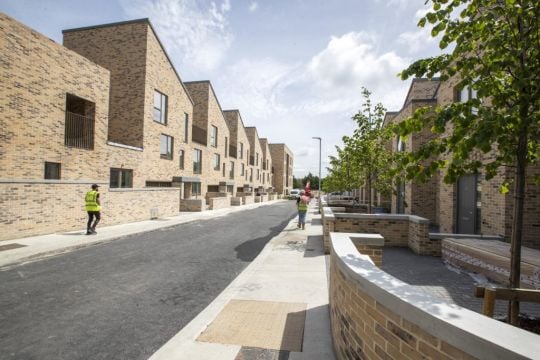National housing charity Threshold said it identifies the need for Ireland to double its current social and cost-rental housing stock if the country is to bring a permanent end to the housing crisis.
The call came as they held their conference titled 'Changing Our Housing System', held at the Richmond Education and Event Centre in Dublin.
It was launched by Minister for Housing, Darragh O’Brien. Other attendees and speakers included Dr. Richard Waldron, Senior Lecturer at the School of Natural and Built Environment, Queen’s University Belfast; political representatives from Fianna Fáil, Green Party, Sinn Féin, People Before Profit, Social Democrats, and the Labour Party.
Ann-Marie O’Reilly, Threshold’s national advocacy manager, said that, given Ireland’s housing system is not meeting everyone’s needs, other models need to be considered. In particular, she highlighted the unitary housing system - currently a feature in several other European countries:
“Insecurity of tenure and unaffordable rents continue to be among the top issues Threshold deals with, from clients.
"While some headway is being made, a longer-term blueprint – with the commitment of successive governments - for a new housing system is needed to tackle these challenges and provide long-lasting solutions.
“Earlier this year, the Housing Commission recommended that the Government ‘increase the proportion of social and cost-rental housing to 20 per cent of the national stock.’ By reaching this 20 per cent target, competition would be created for the private rental sector.
“Currently, social and cost-rental housing accounts for approximately 9 per cent of the total housing stock, or around 182,000 residential units. To reach the 20 per cent target, this would need to more than double to over 360,000 units.
"This would result in a different housing system, known as a Unitary Housing System, or an integrated market.
"This type of housing system has the potential to improve access, affordability and security across all tenures. Many of us have heard of the Vienna Model, which is a unitary system. But it’s not just Vienna. Countries such as Sweden, Germany, Denmark, Finland and the Netherlands operate unitary housing systems.”
Keynote speaker Dr. Richard Waldron concurred that a major expansion of cost-rental housing would alleviate the current supply pressure significantly. He told the audience that scale of output needs to be significantly increased:
“Housing for All targets 18,000 units by 2030. If we wanted to scale up cost-rental to even 20 per cent of the private rental market, that number would need to be tripled.
"This would require significant further capital investment. Right now, cost rental delivery seems to be primarily led by the LDA (Land Development Authority) and AHBs.
"This is welcome, but I do wonder why more is not being made of local authority-led cost-rental schemes. Local authorities backed by multi-year and targeted budgets; adequate resourcing; shared services and expertise; and economic rents, would surely be a key instrument in delivering cost rental housing at scale.”
The introduction of the Residential Zoned Land Tax (RZLT) is an important lever for house-building.
Plans to defer the Residential Zoned Land Tax (RZLT) have proven to be controversial in recent weeks.
Threshold said this measure could play an important role in the delivery of social and cost-rental homes once introduced, given that land accounts for up to 15 per cent of the cost of delivering houses and up to 11 per cent of delivering apartments.







